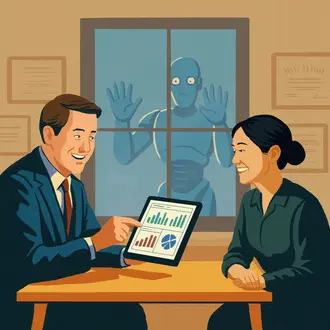Finance
Brexit, explained
The U.K. has until March 2019 to negotiate its divorce from the European Union, and what happens will affect the economic lives of 65 million British citizens, along with millions more across Europe.
What is Brexit?
Brexit is shorthand for Britain’s exit from the European Union. On June 23, 2016, the United Kingdom held a referendum vote on whether or not Britain should stay in the EU. By a vote of 52 percent to 48 percent, British citizens voted to leave.
The EU is a group of 28 European countries in a political and economic union. Together, EU countries have more than 500 million citizens. The U.K. has been a member since 1973, and it will be the first country ever to leave.
Britain’s June 2016 vote did not initiate the process of the U.K. leaving the EU. That was done in March 2017, when the U.K. triggered article 50 of the Lisbon Treaty, which began the actual divorce proceedings. The U.K. now has until March 2019 to leave. Until then, intense debates will take place regarding the terms of the U.K.’s divorce from the EU.
Soft versus hard Brexit
As Britain negotiates its exit from the EU, two distinct possibilities are emerging as the most likely: a soft Brexit, or a hard Brexit. In either scenario, the U.K. will take an economic hit.
A soft Brexit will have less severe consequences since the U.K. would remain in the European single market, a trade bloc that at its core guarantees the free movement of goods, services, capital, and labor.
As part of the single market, EU members can sell their goods in any member country without tariffs or border taxes. The single market also makes it possible for a lawyer or engineer in one country to deliver her services freely across the border to another EU country. Services, primarily financial services, make up 80 percent of Britain’s economy.
Several countries, including Norway, Iceland, and Liechtenstein, are members of the European Economic Area and therefore part of the single market, but not part of the EU. These countries benefit from the single market, and make annual payments to the EU (only at a slightly lesser amount than the U.K. does per head), but they have no vote in determining how it is run. In the case of a soft Brexit, the U.K. would likely work out an agreement similar to the one Norway has with the EU.
With a hard Brexit, the U.K. would no longer be a part of the single market; trade instead would most likely be governed by the rules of the World Trade Organization. Many hard Brexit proponents prefer this option because it would limit immigration, something a soft Brexit wouldn’t do, since the single market ensures the free movement of labor.
“An argument that was made in favor of Brexit was that by restricting Europeans coming into Britain, it would create an economic boon,” said MIT Sloan professor John Van Reenen, an economist who studies Brexit and its economic implications.
This was based on the assumption that immigration displaced British workers, increasing their unemployment and decreasing their wages.
“There’s been a lot of research on that,” said Van Reenen, “and the pretty unequivocal answer is that it’s totally wrong.”
In fact, Van Reenen’s research has shown that European immigrants coming to the U.K. are on average younger, better educated, more likely to work, and less likely to receive benefits than British people.
“Immigrations has brought highly skilled people making contributions through their taxes to help subsidize public services to the U.K,” Van Reenen said. “The bad feeling over immigration, from an economic standpoint, is all misplaced.”
Van Reenen has crunched the numbers and found that with a soft Brexit, the average loss of income for each British household would be 1.3 percent, or more than $1,000 per year. With a hard Brexit, that doubles to 2.7 percent, or more than $2,000 per household.
Those calculations, however, likely underestimate the total cost of Brexit. According to Van Reenen, when economists consider the wider benefits of trade such as its positive impact on productivity, the cost of Brexit increases significantly.
Nontariff barriers and the benefits of trade
Measuring the benefits of reduced nontariff barriers, which the single market also ensures, is more difficult. “These are the invisible things,” Van Reenen said, like border controls, rules-of-origin checks, and regulations that standardize products and safety across the EU.
Fewer nontariff barriers means more trade, which generally means people are better off. With fewer restrictions comes increased competition, productivity, and innovation. EU members sell their goods to a larger market, and by importing high-quality goods from other EU countries, merchants can improve the quality of their products. Less trade, on the other hand, means that people are worse off, said Van Reenen.
These are the “dynamic effects of trade, rather than the narrower, static effects,” Van Reenen said. “When you start taking these into consideration, then leaving the European Union by reducing trade is going to be a lot worse than the one-and-a-half to three percent costs. You can double or even triple those numbers.”
That brings the total cost of leaving the EU to between six and nine percent, based on whether the U.K. goes with a soft or hard Brexit, respectively.
“That six to nine percent is even worse than the global financial crisis of 2008 to 2009,” Van Reenen said.
Why Britain voted to leave the EU
In addition to immigration concerns, there are several potential reasons why British citizens voted to leave the EU. For one, the U.K. pays billions of pounds annually to the EU (all member countries contribute to the EU budget). That money is distributed throughout the EU, with a good portion going to developing infrastructure in poorer countries.
Brexit proponents argued that the U.K. would save money by leaving the EU since it would no longer be subsidizing poorer member countries. In fact, a “leave” campaign advertisement claimed Britain could redirect 350 million pounds each week from the EU to Britain’s National Health Services. The problem is, despite that number being widely circulated, it was also untrue.
While the U.K. will save from money by withdrawing from the EU, that 350 million pounds didn’t take into account that Margaret Thatcher negotiated a large rebate from the EU when she was prime minister, to the tune of billions of pounds each year, and that the EU sends billions more back to the U.K. in subsidies, for research, and in private sector investments.
Not to mention the benefits of the single market. “The increased trade costs are vastly bigger than the smaller amounts of money you might save from not paying out so much to Brussels,” Van Reenen said.
Another factor is that Britons wanted more sovereignty. Many felt that as a member of the EU, the country’s ability to make decisions and set policies was restricted.
Many in Britain also thought the U.K. would be able to work out better trade deals than it has under the EU, but that is highly unlikely, Van Reenen said.
Not only do new trade deals take time (a recent one between the EU and Canada took seven years to work out), they require giving up some level of sovereignty (again, something the British hoped to reclaim with Brexit), and since the British economy is only 18 percent the size of the EU economy, the U.K. doesn’t have the same negotiating power that the EU does.
“The reality is that trying to strike these types of deals is going to be pretty tough for the U.K. If it does strike deals, it’s going to be worse off than it would if it were part of the European Union,” Van Reenen said.
That said, Van Reenen said that if the U.K. is able to work out good trade deals, it would reduce some of the costs of Brexit, “but there is no chance of eliminating the costs.”
What happens next
Leaders from the U.K. and EU are well into negotiations over their divorce, but whether the U.K. will ultimately push for a hard or soft Brexit is still unknown. While Prime Minister Theresa May initially seemed to be heading towards a hard Brexit, she lost her governing majority in a recent election. Many saw that as a rejection of the hard Brexit stance, throwing the outcome more into flux.
And while leaders in the U.K. are ready to discuss trade agreements, those in the EU are putting that on hold until they can iron out details over EU citizens living in the U.K., Britain’s border with Ireland, how much the U.K. will pay to the EU in the divorce settlement, and other issues.
In an attempt to break negotiation deadlock, May has asked for a two-year transitional period, which would leave the relationship between the U.K. and the EU largely unchanged as they continue to work out an arrangement. The U.K. would still have access to the single market, and would continue to allow EU citizens to live and work in Britain. Whether or not the EU accepts this proposal remains to be seen.
“A sensible thing would be a very long transitional period,” Van Reenen said. “But it’s very hard, with the government losing its majority and constant questions over whether the prime minister will stay in her post. The British government is very fragile at the moment. Almost by accident, you could have Britain crashing out of the European Union, which would be pretty awful.”
Ready to go deeper?
Brexit is ongoing, which means that we haven’t even started to scratch the surface of articles and books that will be written about it. For now, here’s some recent research by Van Reenen:
- “Brexit and the future of globalization.”
- “Brexit’s long-run effects on the U.K. economy.”
- “The costs and benefits of leaving the EU: Trade effects.”
- “Brexit and the impact of immigration on the U.K.”
For more analysis, check out the Centre for Economic Performance’s Brexit page.
John Van Reenen
The expert John Van Reenen holds a joint appointment as a professor of applied economics at MIT Sloan and in the department of economics. In 2016, he received the Medal of the Order of the British Empire for services to economics and public policy making. Van Reenen has published widely on the economics of innovation, labor markets, and productivity. He has been a senior policy advisor to the Secretary of State for Health, Downing Street, and for many international organizations.




